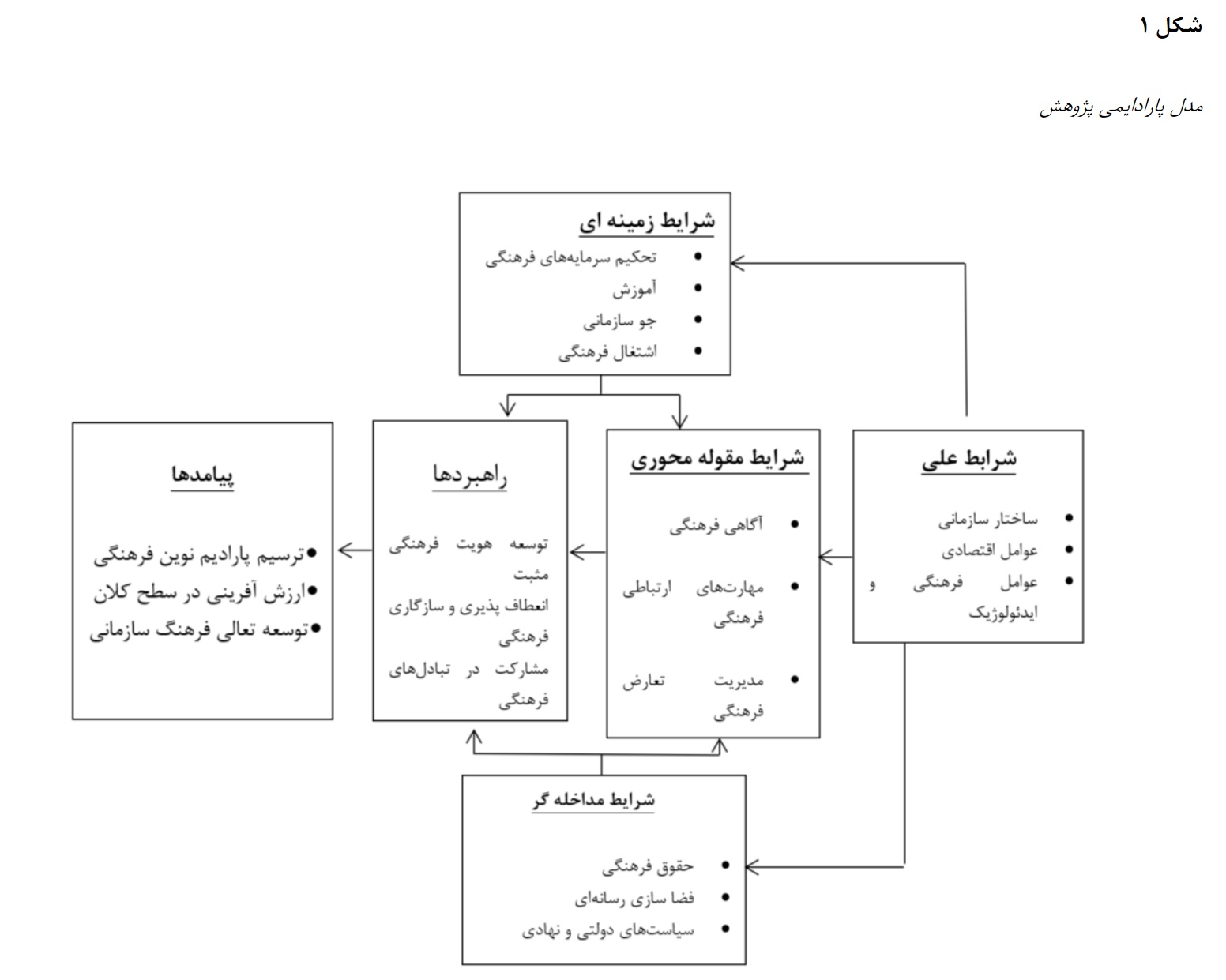The Pattern of Cultural Navigation in Iran's Cultural Domains
Keywords:
Cultural navigation, cultural domains, Grounded TheoryAbstract
The present study was conducted with the aim of presenting a model of cultural navigation within Iran's cultural domains. The research methodology utilized is qualitative and is based on the grounded theory strategy. For data collection, the tool of in-depth interviews was employed. The target population consisted of academic experts, managers, and senior experts in cultural domains who were involved in cultural processes and decision-making. Using purposive sampling, theoretical saturation was achieved after 15 in-depth interviews. In the grounded theory approach applied in this study, through three stages of open, axial, and selective coding, 20 general categories were identified within a paradigmatic framework, including causal conditions, contextual conditions, intervening conditions, central categories, strategies, and outcomes. The results showed that cultural navigation in Iran's cultural domains is realized through causal conditions (organizational structure, economic factors, cultural and ideological factors, and laws and policies), contextual conditions (strengthening cultural capital, education, organizational climate, and cultural employment), intervening conditions (cultural rights, media space creation, and governmental and institutional policies), central categories (cultural awareness, cultural communication skills, and cultural conflict management), and outcomes (shaping a new paradigm, value creation on a macro level, and developing organizational culture excellence).
Downloads








